Charles Pakana (Victorian Aboriginal News):
Joining me today on the Referendum 23 Tapes podcast is the chief executive officer of Reconciliation Australia, Bundjalung woman Karen Mundine. She has over 25 years of experience in leading community engagement and public advocacy and works with governments, the business sector, and of course community as a great advocate for change. Karen, thanks for joining me today on the podcast.
Karen Mundine (Reconciliation Australia):
It’s a great pleasure to be with you, Charles.
Charles:
Karen, let’s get right into it and we’re going to go to something that’s close to your heart and that is the Australian Reconciliation Barometer of which you are the chief architect of that. Now, according to the 2022 Barometer, 93% of all Australians believe it’s important for Aboriginal and Torres Strait Islander people to have a say in matters that affect them. And 87% believe it’s important to protect an indigenous body within the Constitution, so it can’t be removed by any government. So what are some of the key reasons you believe that those figures are not being reflected in support for the voice?
Karen:
Well, I guess the first thing I would say that I still very much believe in the goodwill of the Australian people, and I absolutely remain optimistic that we will ultimately vote Yes for change and for the voice in the referendum. I think when we look at those barometer figures, and those were the 2020 ones, but we’ve tracked it for a couple of surveys before that, and they’re kind of very similar figures. And what it says to me is that when we take all the noise and the politics out of this and we just calmly and rationally explain the idea of the voice, what it’s meant to do and how by putting it to the Constitution, it protects it and takes the politics out. It seems to majority of Australians that it’s fair, that it makes sense, and that that idea of protecting it through the Constitution, taking it out of the day-to-day politics so it can’t be removed on the whim or because it provided advice that somebody in charge didn’t like, that appeals to Australians and our sense of fairness, and there’s a rationality there. So that’s to me, what those initial figures say.
In terms of where we are today, of course nothing happens in a bubble of perfectness and there is a lot of noise. There’s been a lot of political debate that I think has confused the issue and that just sows seeds of doubt.
Charles:
You’ve mentioned clear information, and this is something that Thomas Mayo has mentioned on this podcast in the past where he stated that if the electorate or the Australia understands clearly what’s being put forward, then you don’t really need to go forward with a yes or a no. It’s a bit of a no-brainer, but clear information is not something that we can accept as a given, especially during a referendum or a political campaign. So what’s Reconciliation Australia and the state and territory-based counterparts doing on the ground to promote clear information about the voice to Parliament and the referendum?
Karen:
All of the reconciliation network, we’ve been out and about. We’ve been talking in communities, doing lots of media, lots of presentations, and also really empowering our network of supporters. So all of those thousands of organizations that have Reconciliation Action Plans and they reach about three and a half million Australians. Is really saying, if you believe in reconciliation and you’ve put your hand up for one of these plans, one thing that you can do is ensure that your people have clear factual information. So you don’t even have to at this point necessarily say you are for or against, although many organizations have also thrown their weight behind the Yes campaign, but you have access to people. And all of your people will get to have a say in this. And so it’s really important that they get factual information from sources that they can trust.
And we know that we live in a society where people don’t really go to churches in the way that they used to, and they necessarily have the social connections or communities that we used to have. And so workplaces become these quasi connection points for people, and they are a place that people trust. And so we’re looking for those trusted sources of information coming from trusted voices.
Charles:
You seem to be throwing back a bit in those comments to the 1967 referendum where churches and unions were instrumental in that 90.77% voting Yes for the changes to the Constitution then. Do you have an engagement though with the trade unions because a lot of the unions are coming out in favor of a Yes, including as we had here on the podcast, Australia’s largest union, which is the Australian Nurses and Midwifery Federation. So is there a relationship between Rec Australia and the unions?
Karen:
A number of unions have Reconciliation Action Plans, so they’re part of that community. And we’ve also in the past worked with the likes of the ACTU and other large unions as well. And so there is that natural alliance there. And then more broad broadly through the Yes campaign. So again, this is a question and the Uluru Statement from the Heart was put to the Australian people, and so we’re looking for Australian people and for communities of Australian people to come together to have respectful conversations around what this is. And then also I guess once people are engaged and informed, go out and have those conversations with more friends and families and people within your influence.
Charles:
A lot of young people that we’ve spoken to and I’ve spoken to personally, they are very supportive of this, but they express their frustration and their concern that when they go home and they have these family conversations, they’re quickly shut down. Do you have advice for young people in bringing up these conversations in what might be a somewhat negative family environment?
Karen:
Look, I think it’s always entering into any conversation where there’s a different starting point or a disagreement, shall we say. I think it is important that you start with some curiosity, I think. I’m trying to understand where someone else is coming from. This is what we do all the time with Reconciliation Australia on reconciliation. It’s trying to understand what is it that people are taking exception with their objection to. And while some people may say it’s one thing, it can often be driven by fears about other things. And so really, truly, deeply listening as my grandmother would always remind me, “Listen, two ears, one mouth.”
Charles:
Yep, exactly.
Karen:
So really listening to what it is that people have concerns about and start with curiosity. Start with asking questions and then engage in that conversation. I don’t think anyone wins an argument by sort of coming in with a blunt force of, “No, no, you must vote Yes there’s no other answer.” I think it’s more around a dialogue and a respectful dialogue. And I think there are times when you kind of have to get to the end of that conversation and agree to disagree.
Charles:
You deal a lot with community, as I mentioned in the introduction, and you’ve been doing that for decades. And when I’m talking about community, it’s First Nations and non-First Nations communities. You are obviously hearing a lot of disinformation and then secondhand misinformation within this campaign. So what are some of the most high impact mistruths or misinformation, pieces of misinformation out there about the voice that you are currently hearing?
Karen:
I guess I would say there are some concerns that I absolutely understand, particularly from First Nations people who perhaps have a level of distrust with institutions and particularly with government because history has kind of not built good trust between us. So when it comes to concerns about interfering with sovereignty or potentially with delaying treaty making, I understand where that comes from, but I completely disagree and reject that. And I reject it because there’ve been so many multiple legal experts, including native title barrister Tony McAvoy, who’ve debunked these myths.
I think it’s important to go back to what the actual inclusion in the Constitution or what that new bit would be, and it really is just to recognize Aboriginal and Torres Strait peoples as the First Peoples of Australia by creating a body called an Aboriginal and Torres Strait Voice. And that that voice will give advice to government and to parliament on matters in relation to us as Aboriginal and Torres Strait peoples. That’s all the power that it does, and it doesn’t impact other areas of endeavor for our First Nations people. I think that’s really important to remember.
In terms of other no cases, it’s always much harder to present a case for change than it is to present a case that things should just stay the same. And I’ve seen some pretty awful things out there that just are not true and in no basis. And it reminds me a little bit of the debates around native title that happened.
Charles:
Yes.
Karen:
This idea that people are coming to take your houses and that your farms are potentially going to be impacted or taken away from you, or that Aboriginal Torres Strait people will somehow hold up progress or projects moving forward, and all of that is simply not true. What the voice is about is creating a mechanism for us as First Nations People who haven’t always had that ability to speak to parliament, to government, and particularly from communities, to hear what is working or not working in our communities and how we might be part of fixing that. And that’s really what the voice is. It’s a mechanism for that advice to come through.
Charles:
Karen, you’ve mentioned that it’s important to have the voice. It’s important to hear from people on the ground. Now, one of the things that I’ve noticed seems to be missing from various naysayers to the Voice to Parliament is recognition of the fact that there will be local and regional voices right across Australia. Now, this was clearly outlined in the Calma/ Langton Report of 2017, and the referendum working group early this year came out with a fact sheet and once again, reinstated the fact that there would be local and regional voices. How important do you believe those local and regional voices will be in helping to address these matters on the ground, these matters that the No campaign seems to be saying, well, that’s what we have to focus on.
Karen:
Those local voices and those regional structures are so important of how all of these things connect and fit together. I mean, if I think about it like a Dixie puzzle, it’s you can’t have one without the other. And we’re seeing this happen already when we look at Victoria and the assembly that’s happening there. I mean, it’s important for the assembly to be there so that the conversations and engagement around treaty can then happen. And to see that happening in other states and territories, other regions. The government has clearly said that this is part of what will also happen next, but we’ve got to get over this first hurdle with reform. We have to, in principle, agree that we should change the Constitution to recognize First Nations Peoples and create a mechanism for us to have a greater voice.
Charles:
Well, let’s say the referendum doesn’t get up and the figures are sort of a bit worrying right now, but the electorate is a fickle thing, so things could change tomorrow. But if the referendum were not to receive that required double majority vote, what impact do you see that this would have on the reconciliation movement right across the country?
Karen:
So again, I would just say I continue to believe in the goodwill of the Australian people, and I do remain confident. Regardless of the outcome of the referendum, so win, lose or draw, the work of reconciliation will continue. It has to continue. It is not one silver bullet thing that changes the past 250-plus years of history and the relationships and levels of trust that have happened.
If we aren’t able to get the referendum up, it means that our job needs to increase like nothing before that. And that we’re not where we thought we were in our relationship and all of our supporters, all of those two and a half thousand organizations that have Reconciliation Action Plans, we need to redouble our efforts.
Of course, if it’s a Yes, we don’t get to rest on our laurels either. We know that there is still more to be done. As I said, the referendum is just the first in-principle agreement that we want to see change. We’ve then got to put our shoulders to the wheel to create that change.
Charles:
Karen Mundine, thanks so much indeed for coming onto the Referendum 23 Tapes podcast.
Karen:
Pleasure.


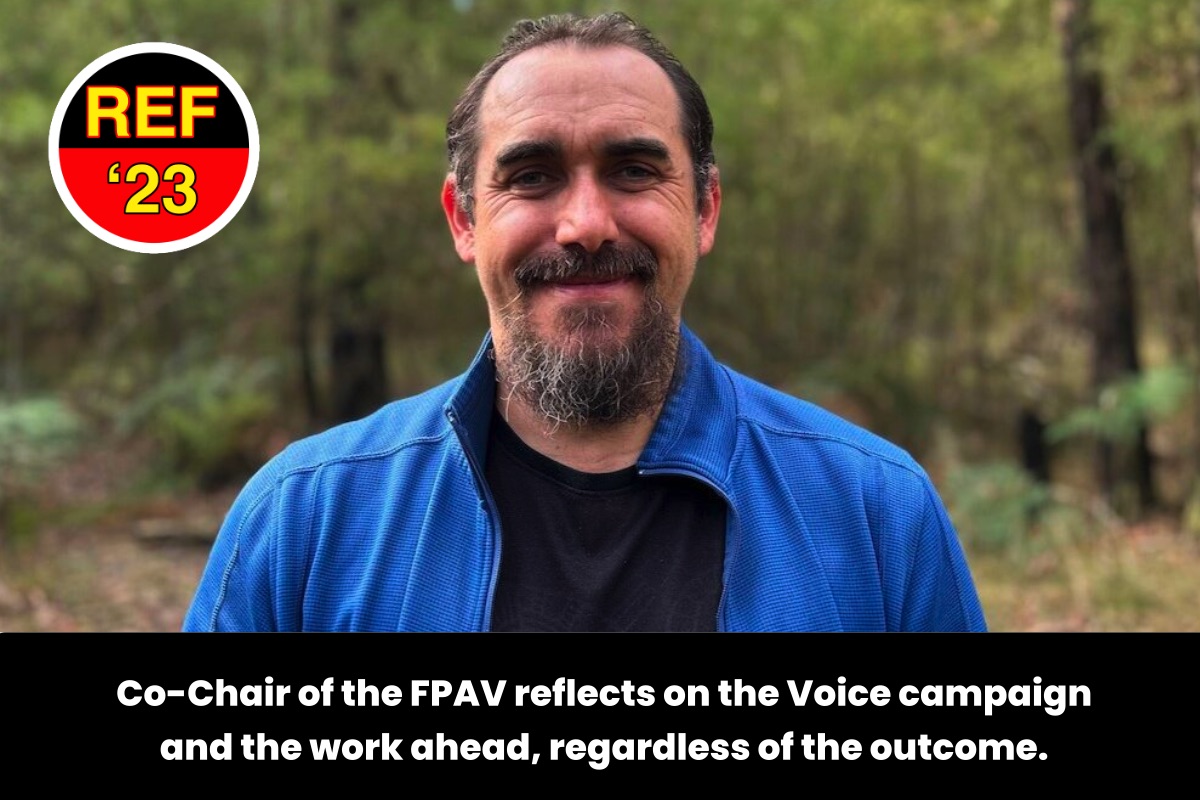
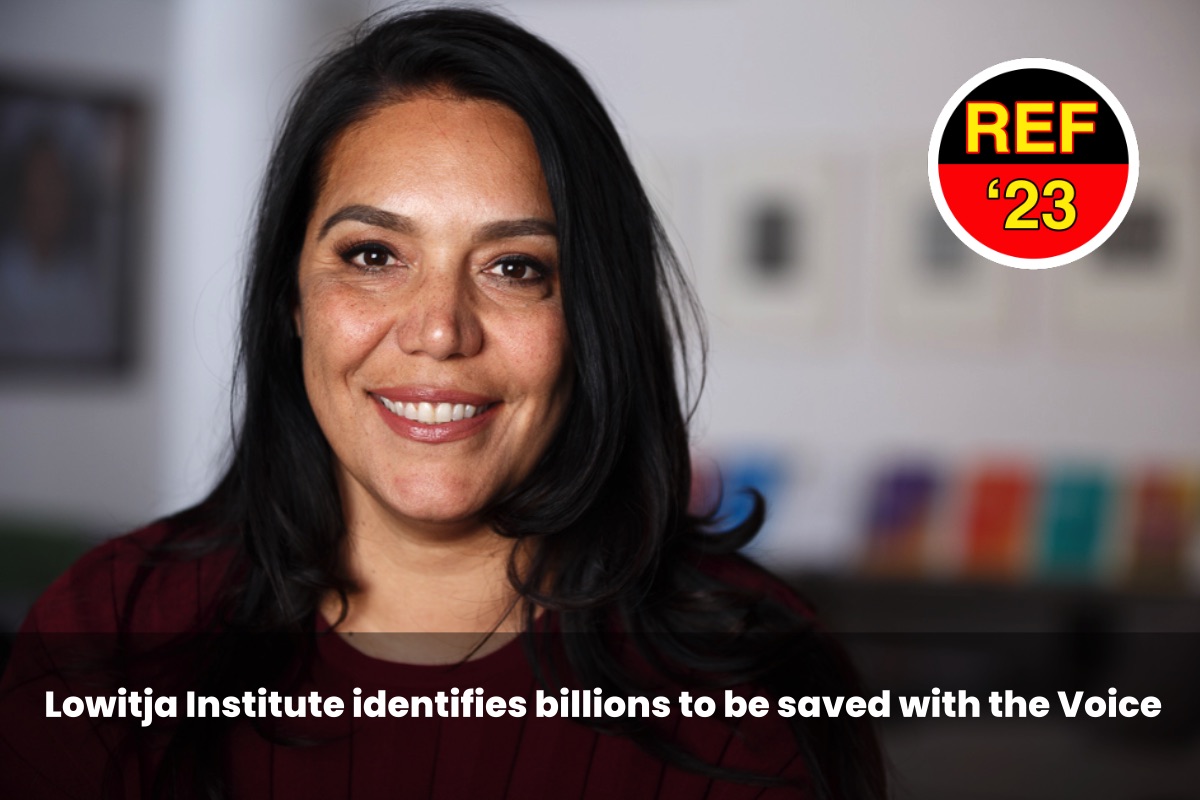
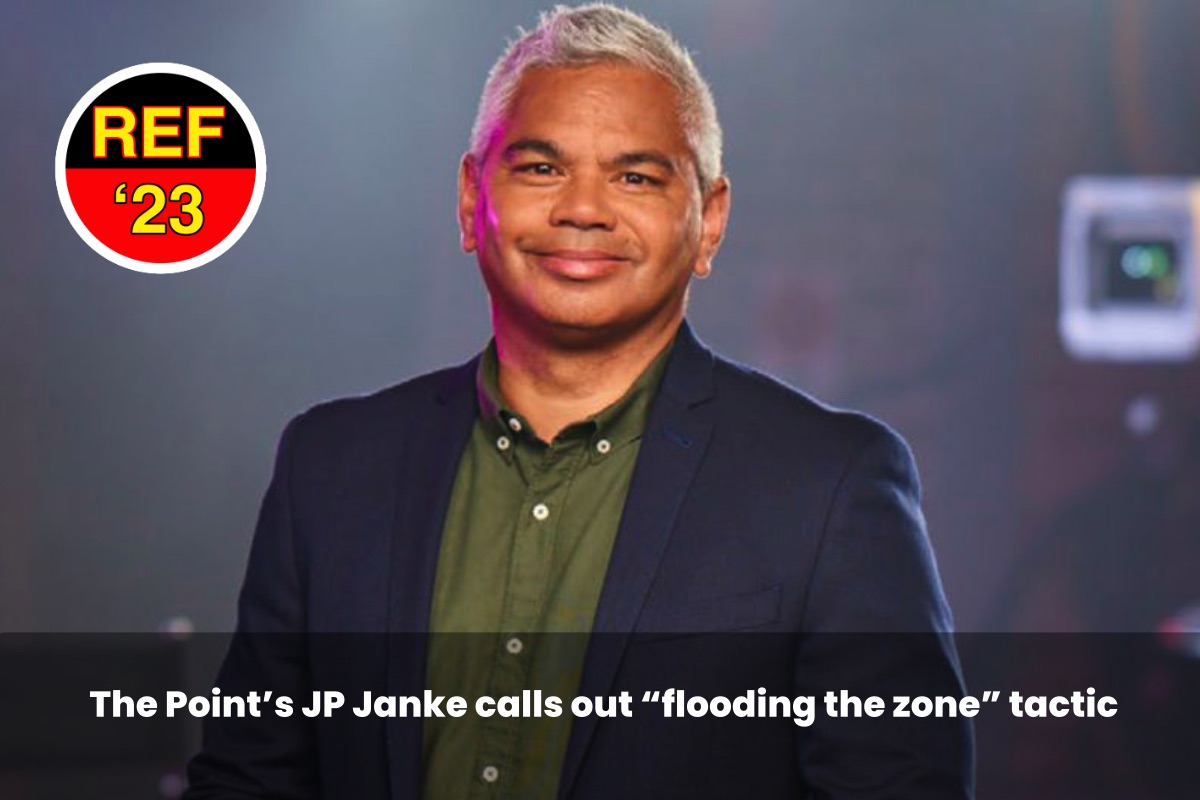
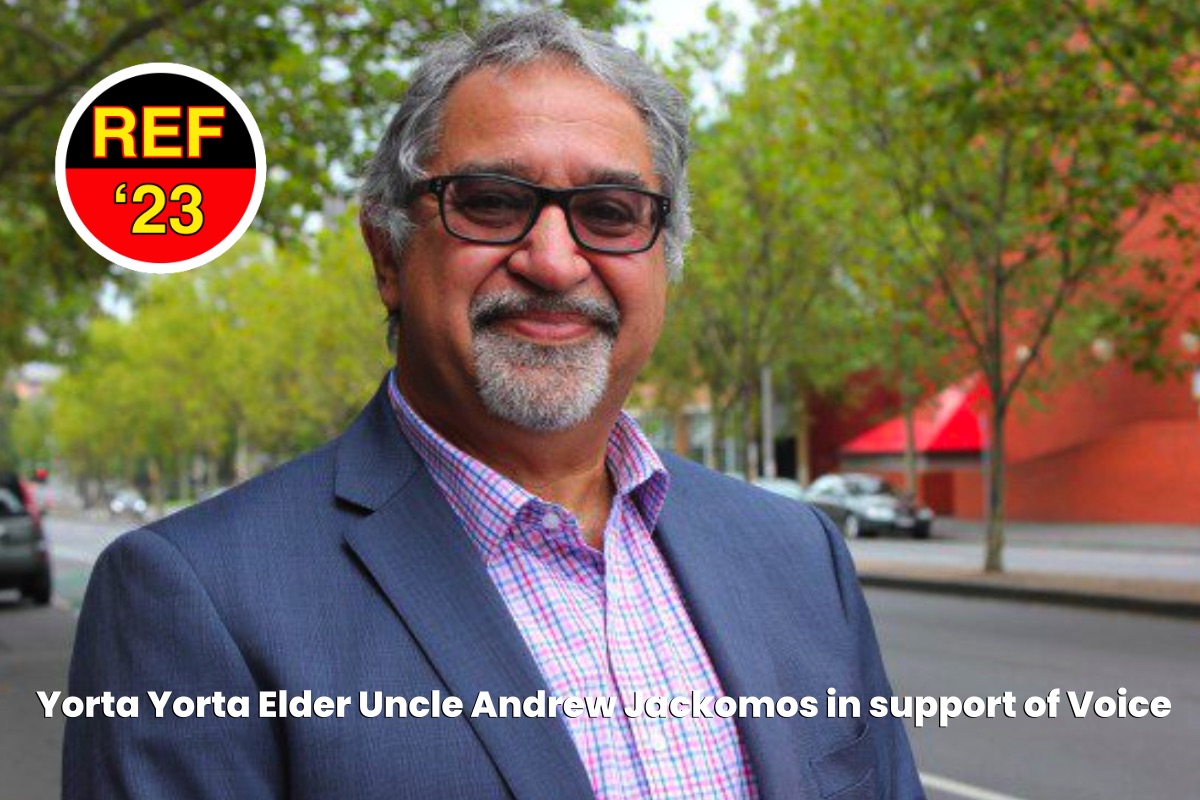
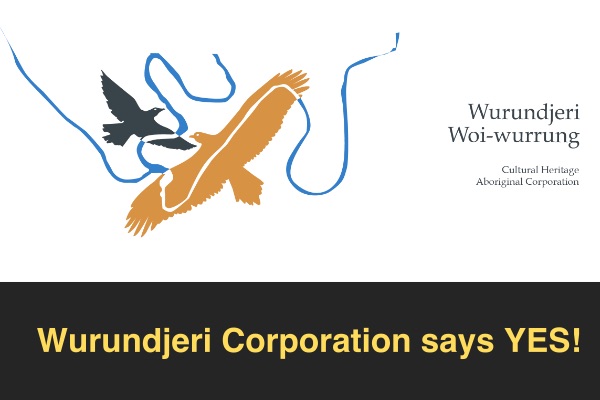

0 Comments